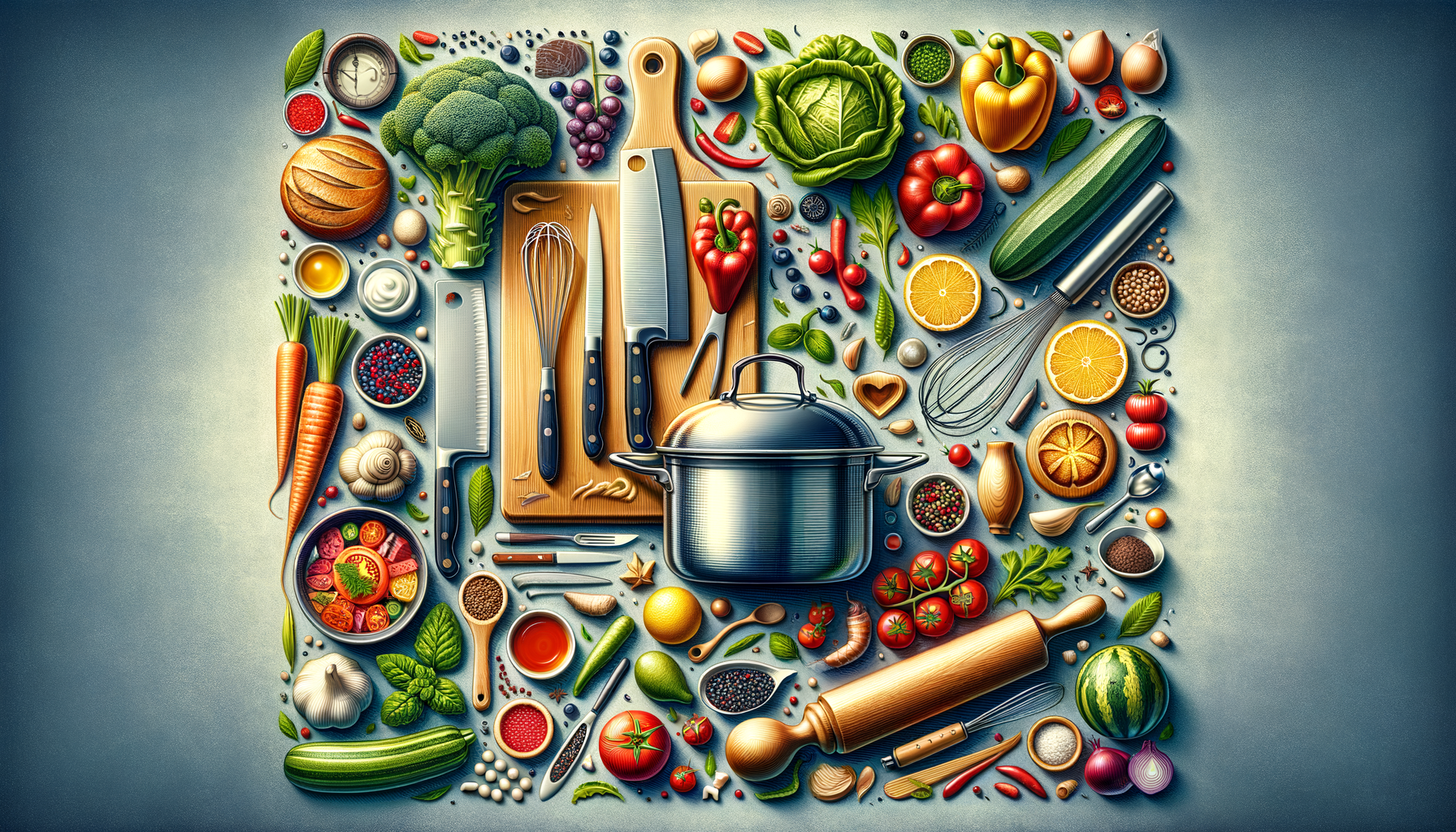
Beginner Cooking? Start With These 5 Fundamentals From Culinary School
Introduction to the Essentials of Cooking
Cooking is an art that requires patience, practice, and a keen understanding of basic techniques. For beginners, mastering the fundamentals can make the difference between a frustrating experience and a rewarding one. This article delves into five essential cooking fundamentals that can transform your culinary skills. Whether you’re aiming to impress guests or simply want to enjoy the process of preparing meals, these tips offer a solid foundation.
Understanding Knife Skills
One of the cornerstones of efficient cooking is mastering knife skills. Proper knife techniques not only ensure safety but also enhance the quality of your dishes. Begin with learning how to hold a knife correctly. The grip should be firm yet relaxed, with your index finger and thumb pinching the blade near the handle. This grip provides better control and reduces fatigue.
Practice basic cuts such as dicing, slicing, and chopping. Uniform cuts ensure even cooking, which is crucial for achieving the desired texture and flavor. Investing time in honing your knife skills can significantly speed up your preparation time and improve the presentation of your meals.
Remember, a sharp knife is safer than a dull one. Regularly sharpening your knives will make cutting smoother and prevent accidents. Consider using a honing steel before each use and periodically sharpening your knives with a whetstone or professional service.
The Science of Seasoning
Seasoning is more than just adding salt and pepper to your dishes. It is an art that can elevate the flavors of your ingredients. Understanding the balance of flavors—salty, sweet, sour, bitter, and umami—can help you create well-rounded dishes.
Start by tasting your food throughout the cooking process. This allows you to adjust the seasoning as needed. Salt is the most common seasoning, but herbs and spices can add depth and complexity. Experiment with different combinations to find what complements your dishes.
Keep in mind that some seasonings intensify over time. When preparing dishes that will be stored or reheated, be cautious with the amount of seasoning. It’s easier to add more later than to correct an over-seasoned dish.
Mastering the Heat
Understanding how to control heat is crucial in cooking. Different cooking methods require different heat levels, and mastering this can prevent common cooking mishaps such as burning or undercooking.
Familiarize yourself with the settings of your stove and oven. High heat is often used for searing and boiling, while medium and low heat are suitable for simmering and gentle cooking. Knowing when to adjust the heat can help you achieve the desired texture and flavor.
Remember that residual heat continues to cook food even after it is removed from the heat source. Allowing meats to rest after cooking can result in juicier and more flavorful dishes. Practice patience and resist the urge to cut into your food immediately after cooking.
Embracing Mise en Place
Mise en place, a French term meaning „everything in its place,“ is a fundamental principle in professional kitchens. It involves preparing and organizing all ingredients before cooking, which streamlines the cooking process and minimizes stress.
Begin by reading through your recipe and gathering all necessary ingredients. Measure and prep them before you start cooking. This practice allows you to focus on the cooking process without interruptions, ensuring that you don’t miss any steps or ingredients.
Adopting mise en place in your home kitchen can lead to more efficient cooking and cleaner workspaces. It also allows you to enjoy the process more, as you can focus on the art of cooking rather than the chaos of preparation.
Conclusion: Building Confidence in the Kitchen
Mastering these fundamental cooking skills can significantly boost your confidence in the kitchen. By focusing on knife skills, seasoning, heat control, and organization, you can create delicious and visually appealing dishes. These skills form the backbone of culinary expertise and are essential for any aspiring home chef.
Remember, cooking is a journey. Embrace the learning process, and don’t be afraid to experiment and make mistakes. With practice, these fundamentals will become second nature, allowing you to explore more complex recipes and techniques.